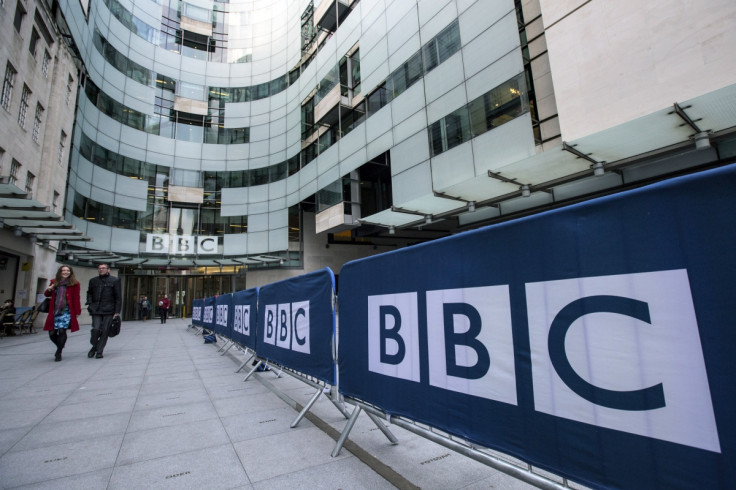Beware those critics that prefer Putin's propaganda to the BBC

A petition calling for the BBC political editor Laura Kuenssberg to be fired is currently doing the rounds. It boldly states that "should the independent review find Laura Kuenssberg to have been less than impartial and/or find her to take a partisan position we would ask that she is moved to a role that is more suitable."
Petitions demanding that political journalists be sacked for reporting the 'wrong' version of the news are becoming increasingly common. Kuenssberg has been the target of hostile petitions in the past, as has the former BBC political editor Nick Robinson, the BBC News presenter Ben Brown, and for a variety of alleged sins, the corporation itself.
The anti-Kuenssberg petition is all the more tiresome because it is being assiduously promoted by the Canary, a website which represents the very worst of so-called citizen journalism. Like many 'alternative' news websites that have sprung up in recent years, the Canary purports to be 'fearlessly independent' but in practice exchanges one lot of loathsome propaganda for another.
The editor of the Canary accuses the BBC of 'pure propaganda' yet is a regular guest on RT (formerly Russia Today), the fake Kremlin news channel which promotes Holocaust deniers and conspiracy theories about Bashar al-Assad's use of chemical weapons in Syria. Unlike the BBC, which is governed by an at least nominally independent royal charter, RT exists because, as Vladimir Putin's spokesperson has himself said, Russia needs "more propaganda".
Conspiracy theories are a pale imitation of critical thinking and are thus attractive to stupid people who want to feel clever.
This should give some idea as to the sort of 'impartiality' those pushing the anti-BBC petitions are seeking. They don't want editorial independence so much as a mouthpiece that reflects and pushes their own faddish obsessions.
There are many things wrong with the media in Britain. The newspapers are often the playthings of rich men and there is a paucity of news and comment that is not dependent on some corporate interest. The BBC may be stuffily conformist at times, but there is no solid evidence that it is overtly politically biased.
If the penumbra around the BBC is culturally and economically liberal – enraging Ukip supporters and Corbynistas alike – then this is almost certainly a subtle reflection of the backgrounds of its middle-class, London-based journalists. 'Liberal elitism' is usually no more than majority opinion among educated people. The fact that both left and right political fringes – even if one of those fringes does now control the Labour Party – get so het up about 'bias' should indicate that the corporation is performing quite an effective balancing act.

That of course does nothing to stop the peculiar sense of victimhood among the BBC's detractors, at the heart of which lie two pernicious assumptions. The first of these is that the average person is not privy to the sort of unfiltered information that activists possess. The public essentially live in servitude to nefarious elites because the media is concealing the truth from them, the eternally blinkered 'sheeple'.
There is no pressing need to undermine Jeremy Corbyn clandestinely because he is making a perfectly good fist of the job himself.
If they could only cast off their collective blinkers by reading what we've read, Britain would invariably erupt in riot and revolution. In its left-wing incarnation, this co-exists with a sense that a vast back room establishment is conspiring to bring down the Labour leader Jeremy Corbyn.
Conspiracy theories are a pale imitation of critical thinking and are thus attractive to stupid people who want to feel clever. They can also act as a palliative when the truth itself is intolerable. To believe in an anti-Corbyn conspiracy you must first believe that the British establishment is afraid of him.
Yet the opposite is nearer the truth: Corbyn's Conservative opponents are shooting at fish in a barrel and they know it. The most effective piece of anti-Labour propaganda is in fact the Labour leader. Corbyn has just taken Labour to its worst local election results since 1985. Labour has finished third in Scotland and it has lost its majority in the National Assembly for Wales. There is no pressing need to undermine Jeremy Corbyn clandestinely because he is making a perfectly good fist of the job himself.
And yet the reason political activists rarely make good journalists is because journalism sometimes necessitates an admission that the people you're not naturally disposed to may have a point. Activism on the other hand is a constant war of attrition with the other side.
For the activist, admitting your own shortcomings is infinitely more difficult than lashing together a petition and turning up the volume on hapless journalists who are guilty of failing to report the officially-sanctioned version of the truth. This is why journalism must always remain fiercely independent of politicians: for the political activist, truth is synonymous with whatever the party line is at a particular moment in time.
The halfwit who once hollered about The End Times in Trafalgar Square now has a broadband connection and believes – nay is told – that his opinion is equally valid.
Many of the travails currently afflicting the left can also be located in a sort of squishy relativism that seems to have slowly taken over. Log onto any left-wing forum and it will immediately smack you in the face. The BBC isn't perfect therefore it is just as bad as Kremlin propaganda. Multiparty elections are no better than elections featuring a single candidate. Britain has food banks therefore it has no moral authority to criticise North Korea.
The levelling potential of the internet, with its implicit assumption that we're all equally special snowflakes, has made this phenomenon infinitely worse by handing a megaphone to both grievance-mongers and deleterious websites which purport to reveal 'the truth the mainstream media is keeping from you'. The result isn't so much democracy as what the novelist Martin Amis has called the 'parity of ego': the halfwit who once hollered about The End Times in Trafalgar Square now has a broadband connection and believes – nay is told – that his opinion is equally valid.
As far as the BBC goes, this ought to be a moment of profound clarity for progressives. The Conservative Party will this week attempt to bring the BBC to heel. On Thursday (12 May) the culture secretary John Whittingdale will publish long-awaited proposals that will seek to curb the BBC's editorial independence, creative freedoms and ability to run its own affairs
. Many on the right, drunk on their own conspiracy theories about BBC bias, would dearly love to turn the BBC into another obsequious corporate broadcaster. As the Wolf Hall director Peter Kosminsky said in his speech at the Baftas last night: "It's time for us to stand up and say no to this dangerous nonsense."
Instead, the activist left has declared its own war on the corporation. It would be easy to see this as stupidity in isolation. Yet since last September, the Labour Party has been led by a man who, like the multitudinous lunatics who run riot online, prefers Venezuela to Scandinavia and Iranian and Russian state television to the stolid tones of the BBC.
James Bloodworth is the author of The Myth of Meritocracy
© Copyright IBTimes 2024. All rights reserved.























